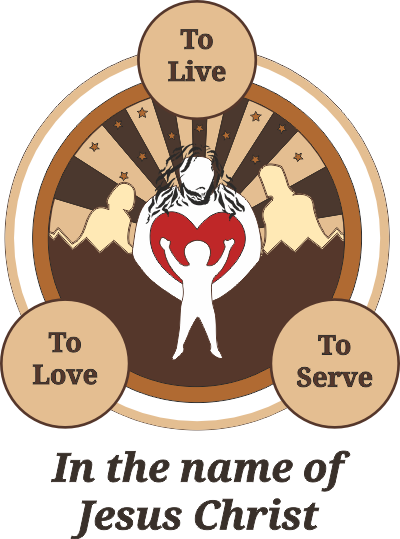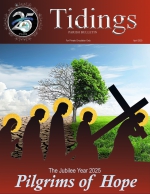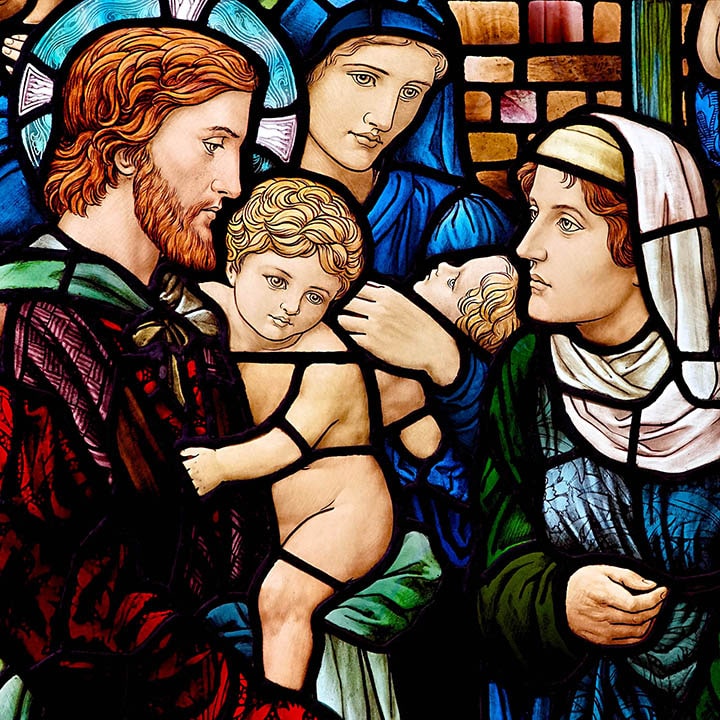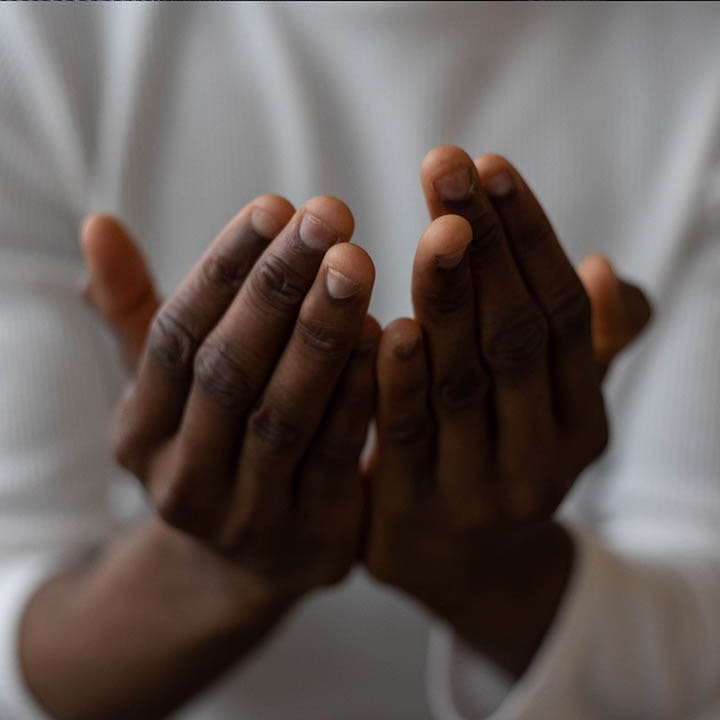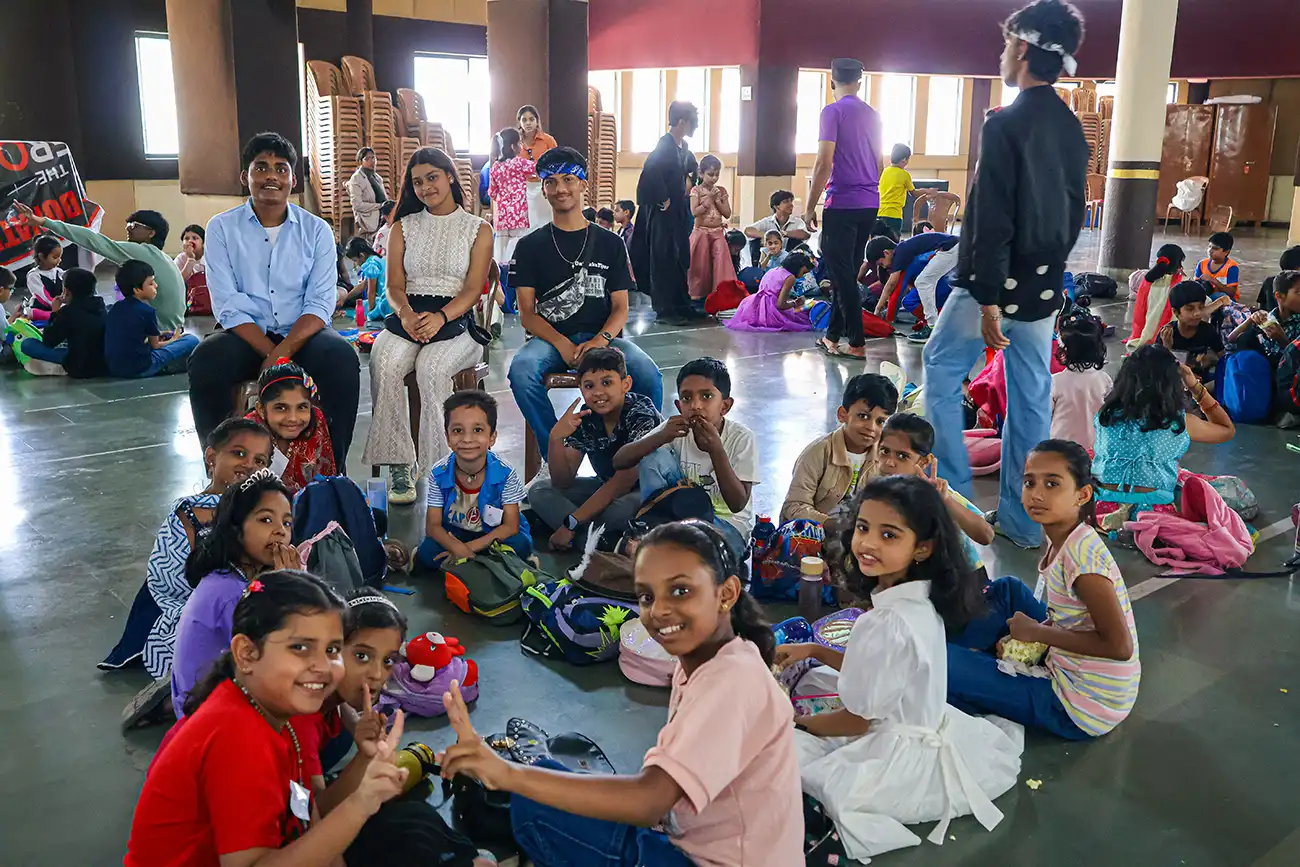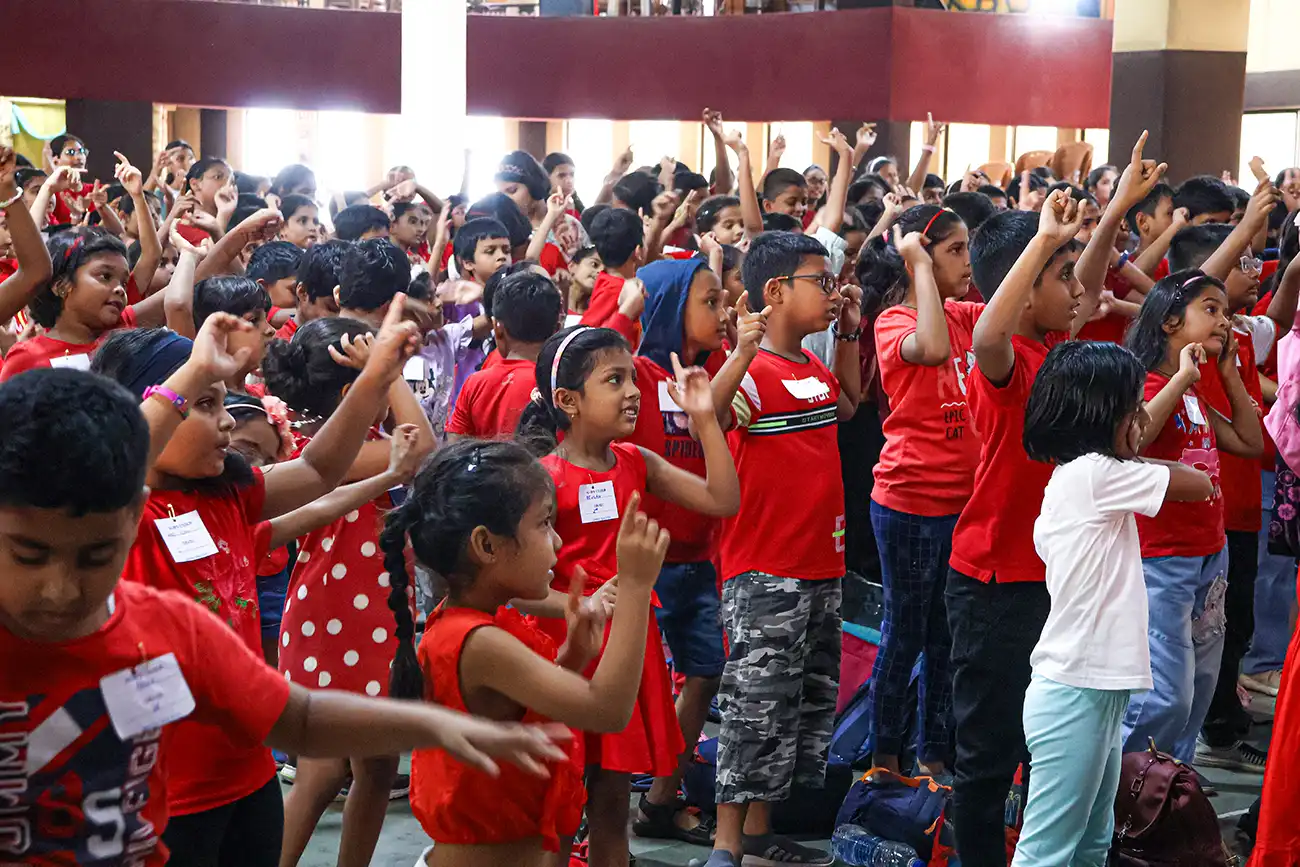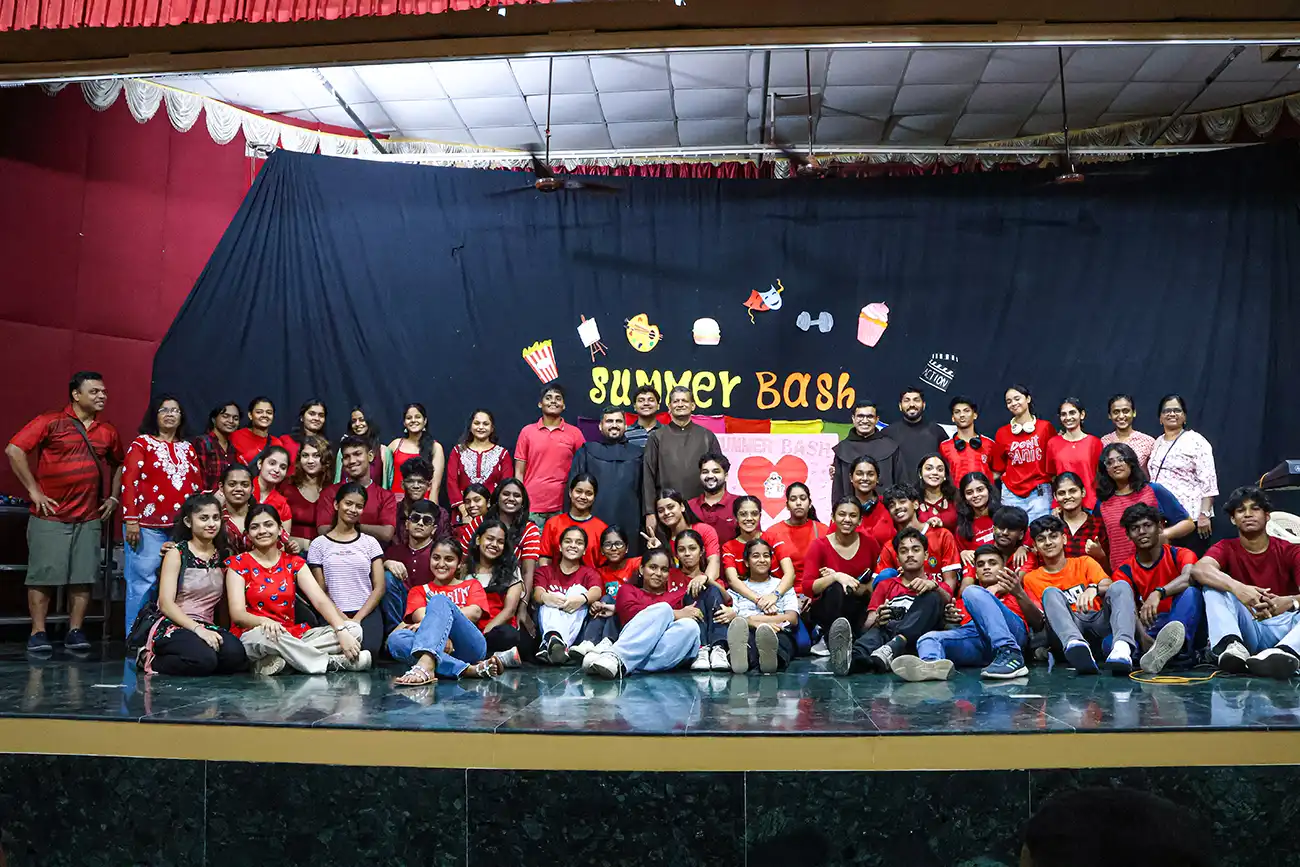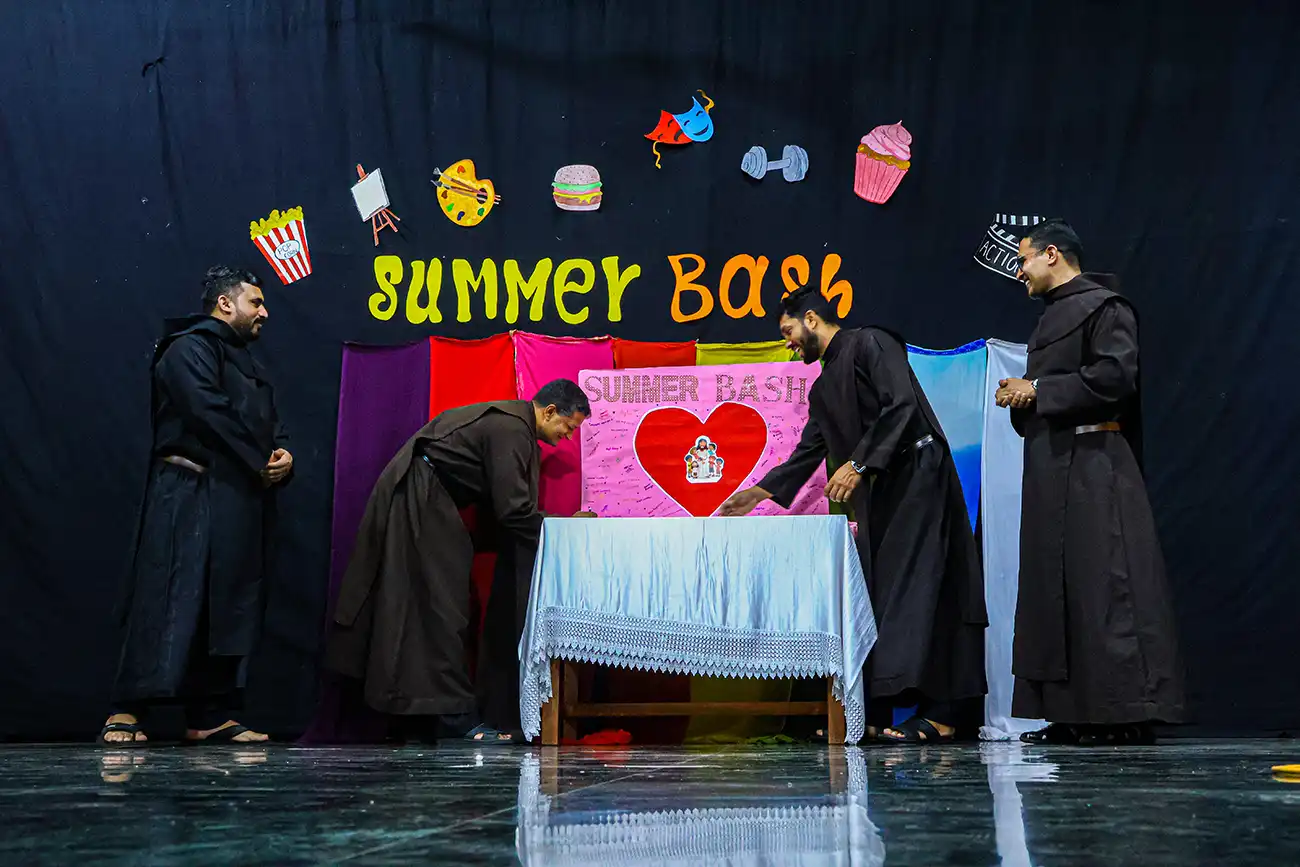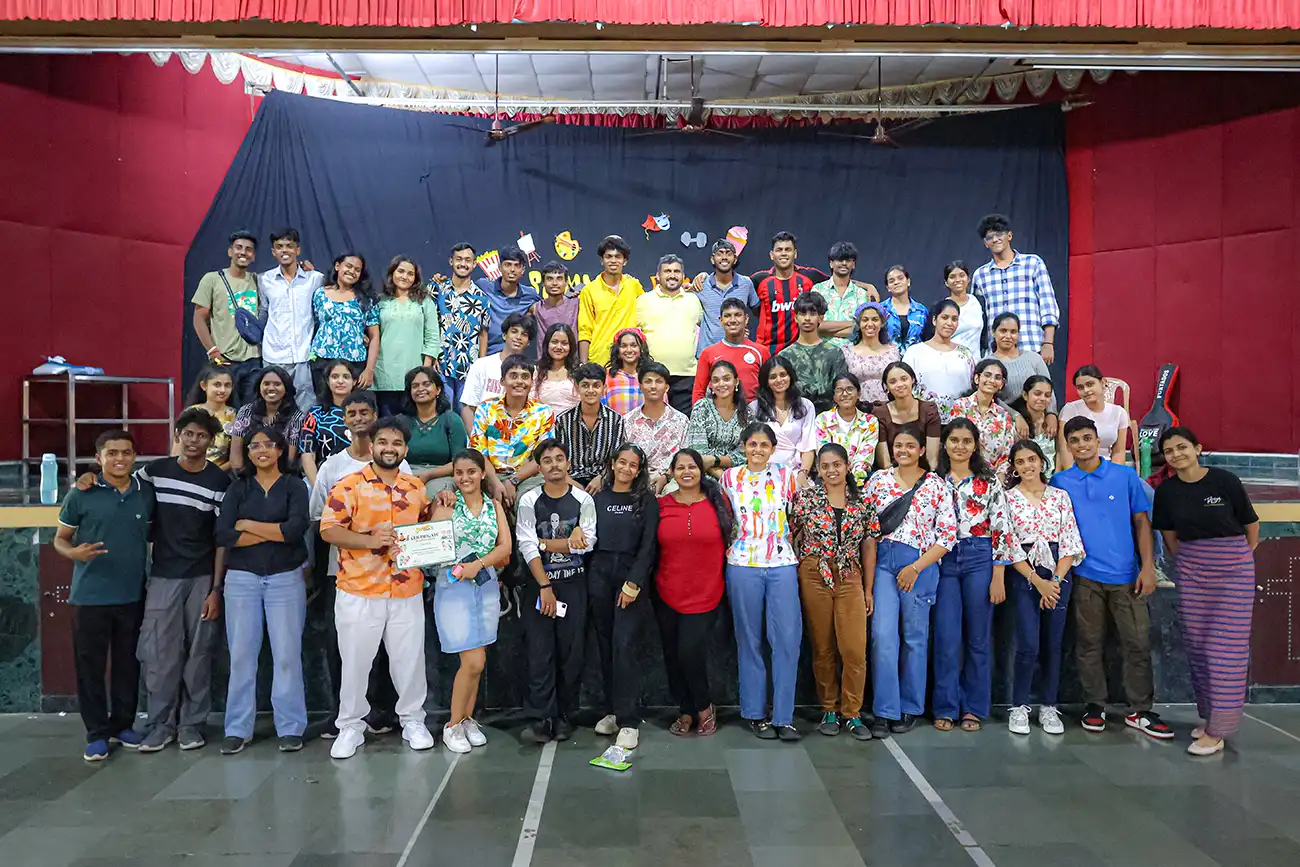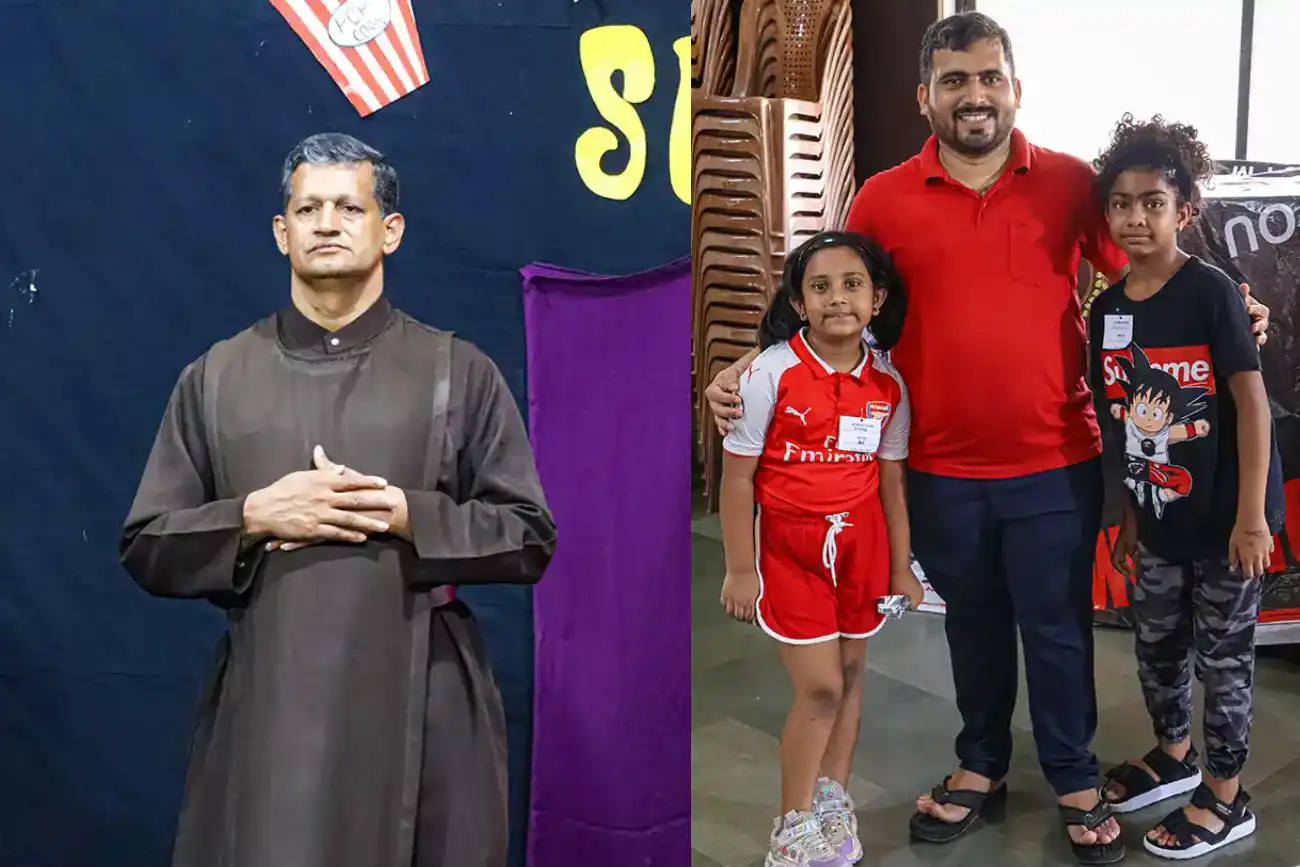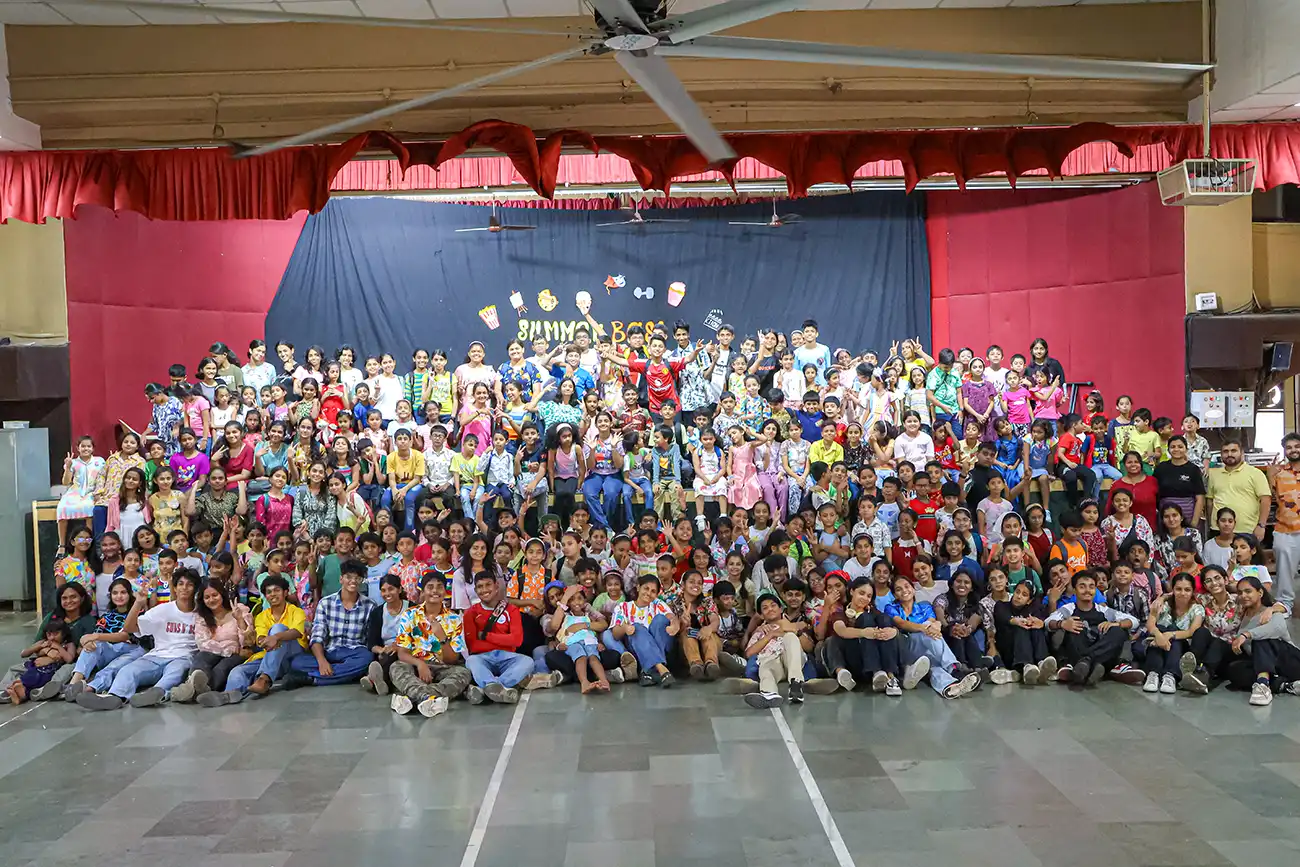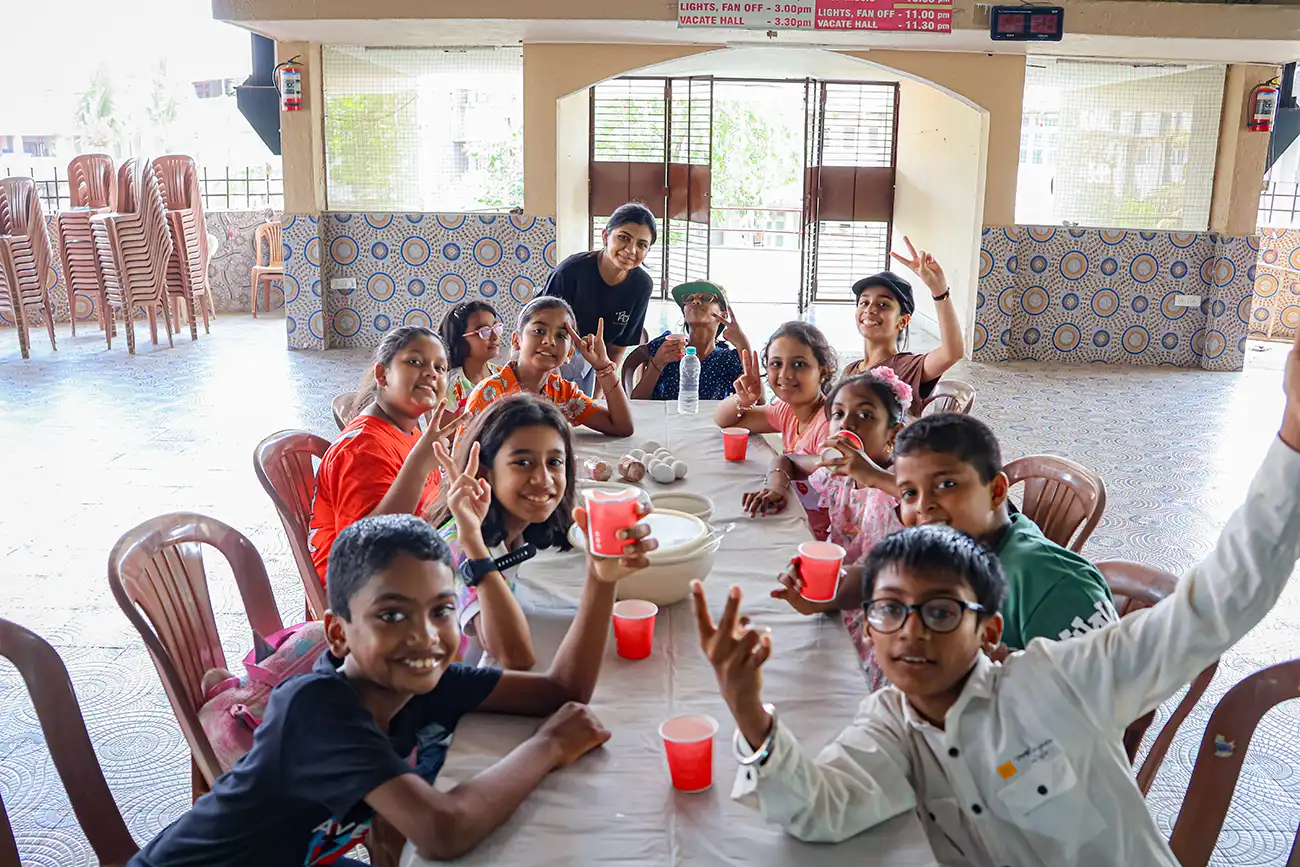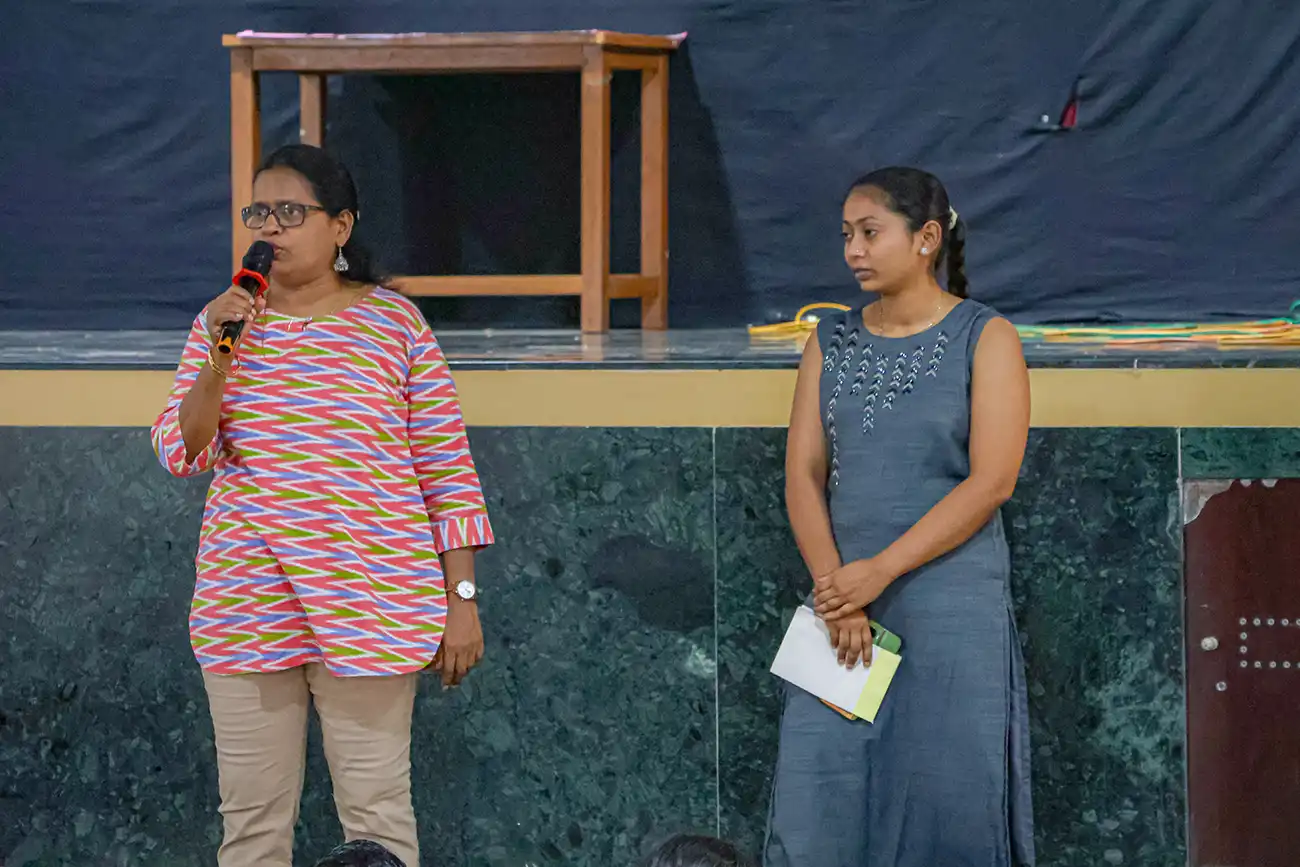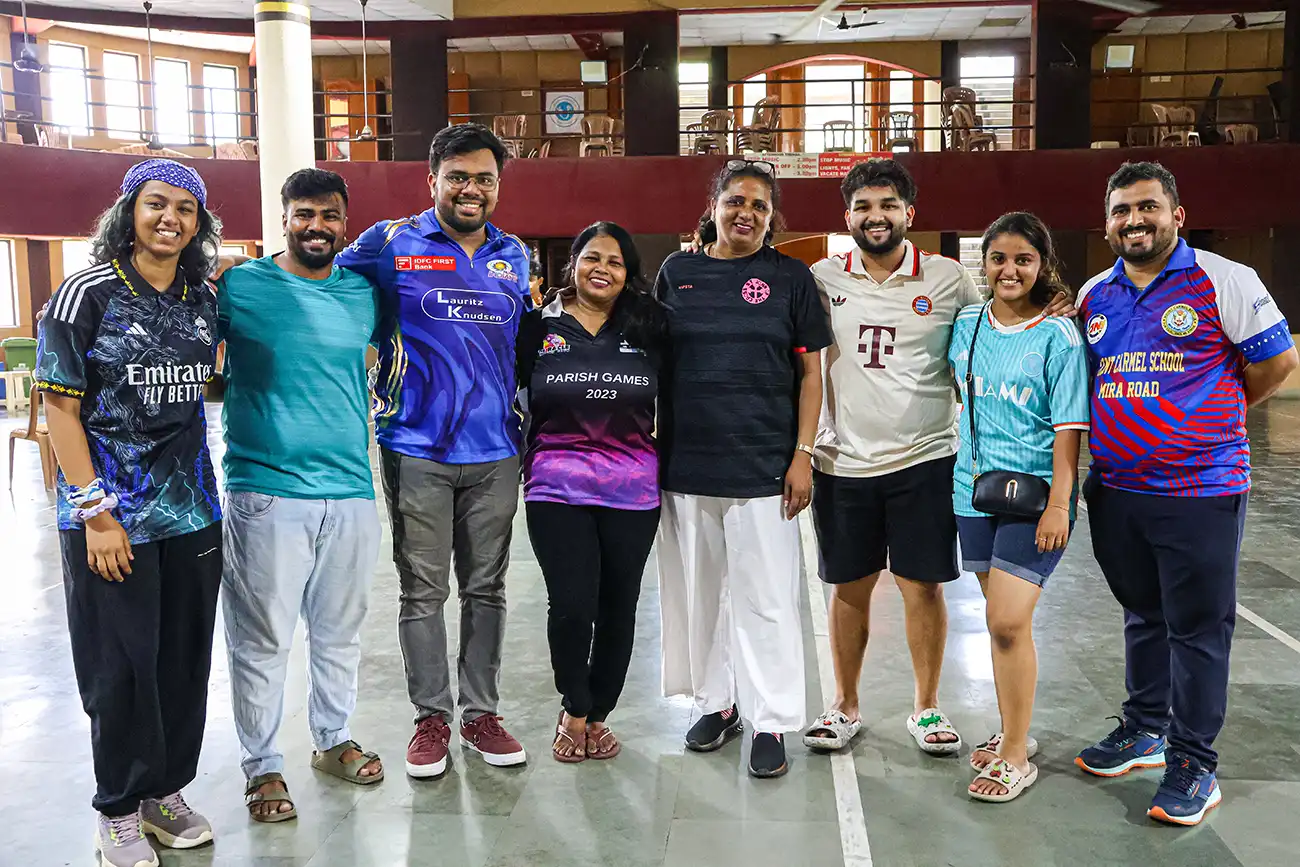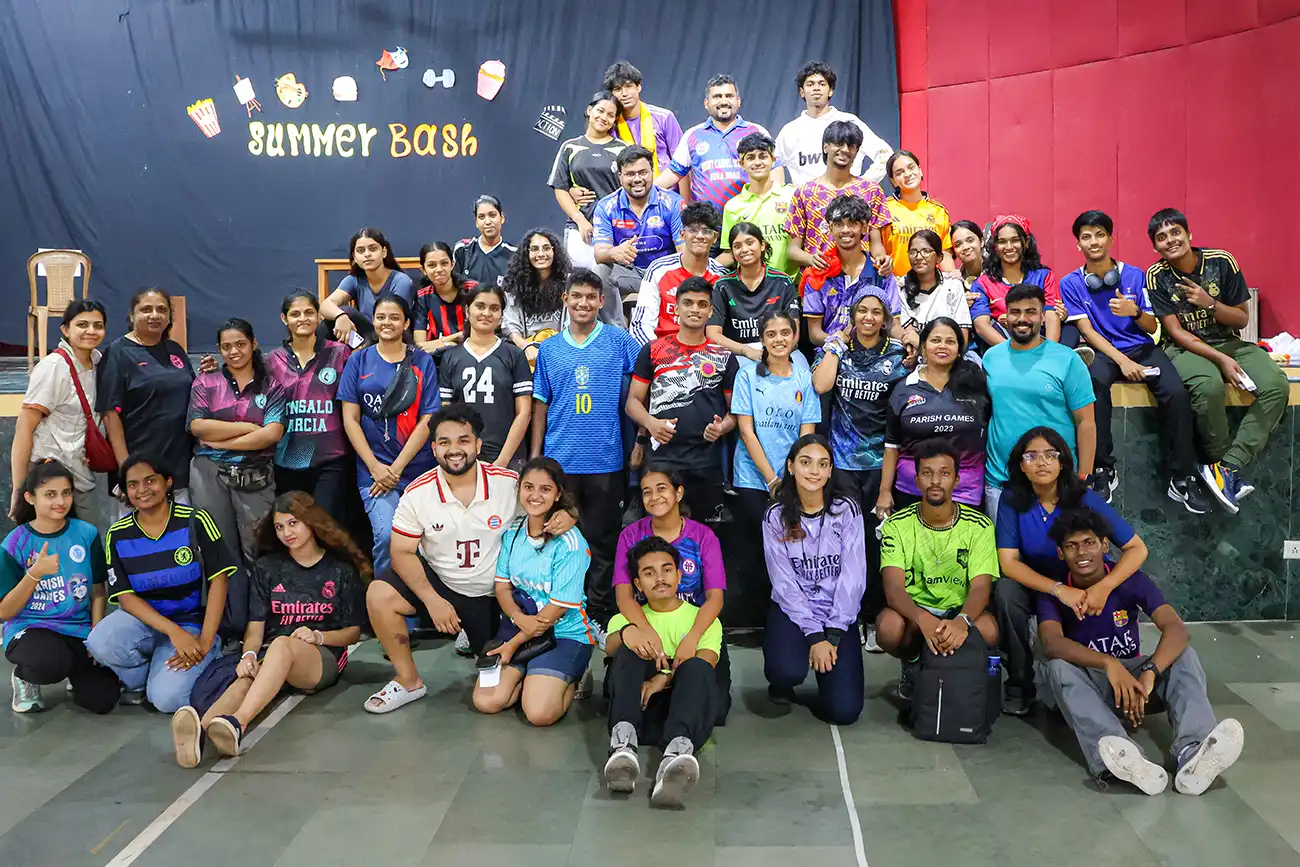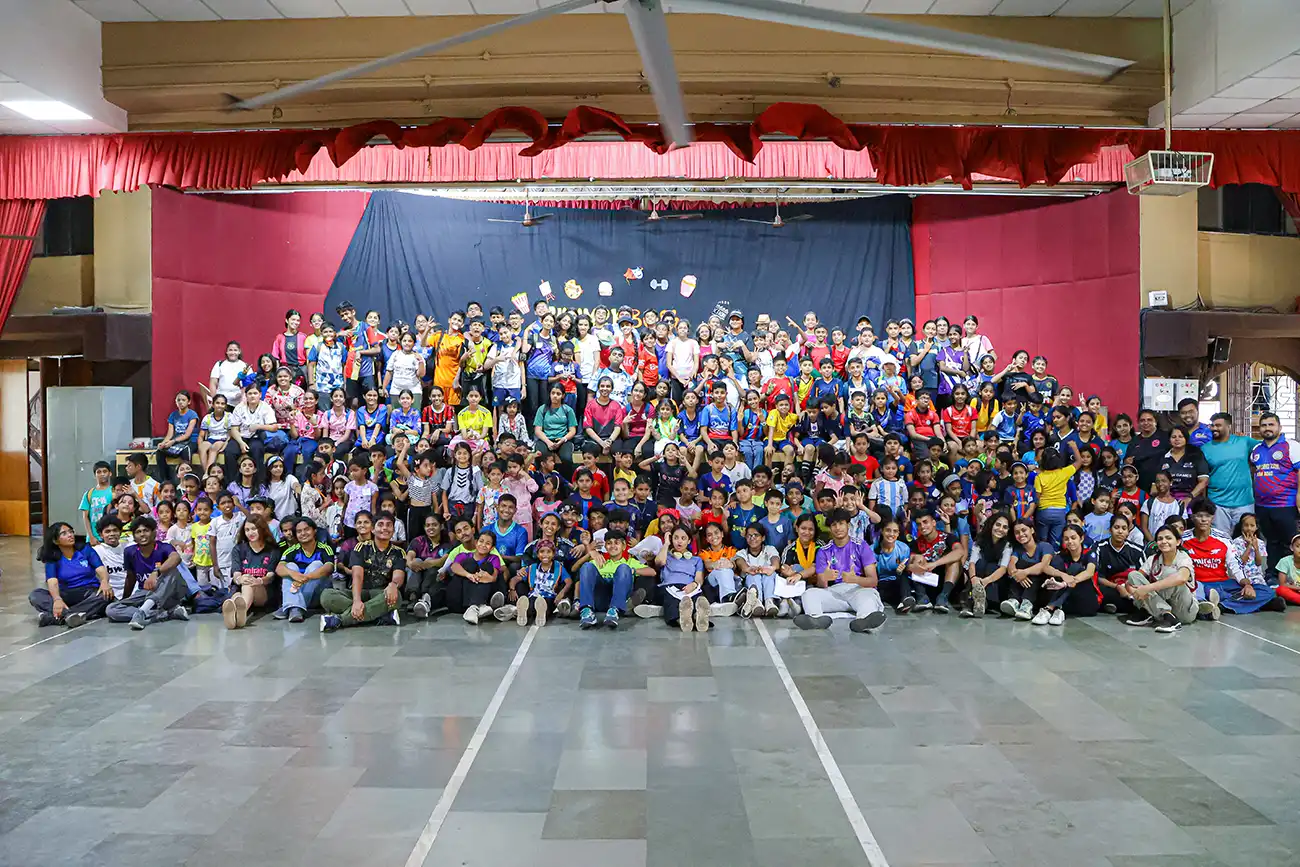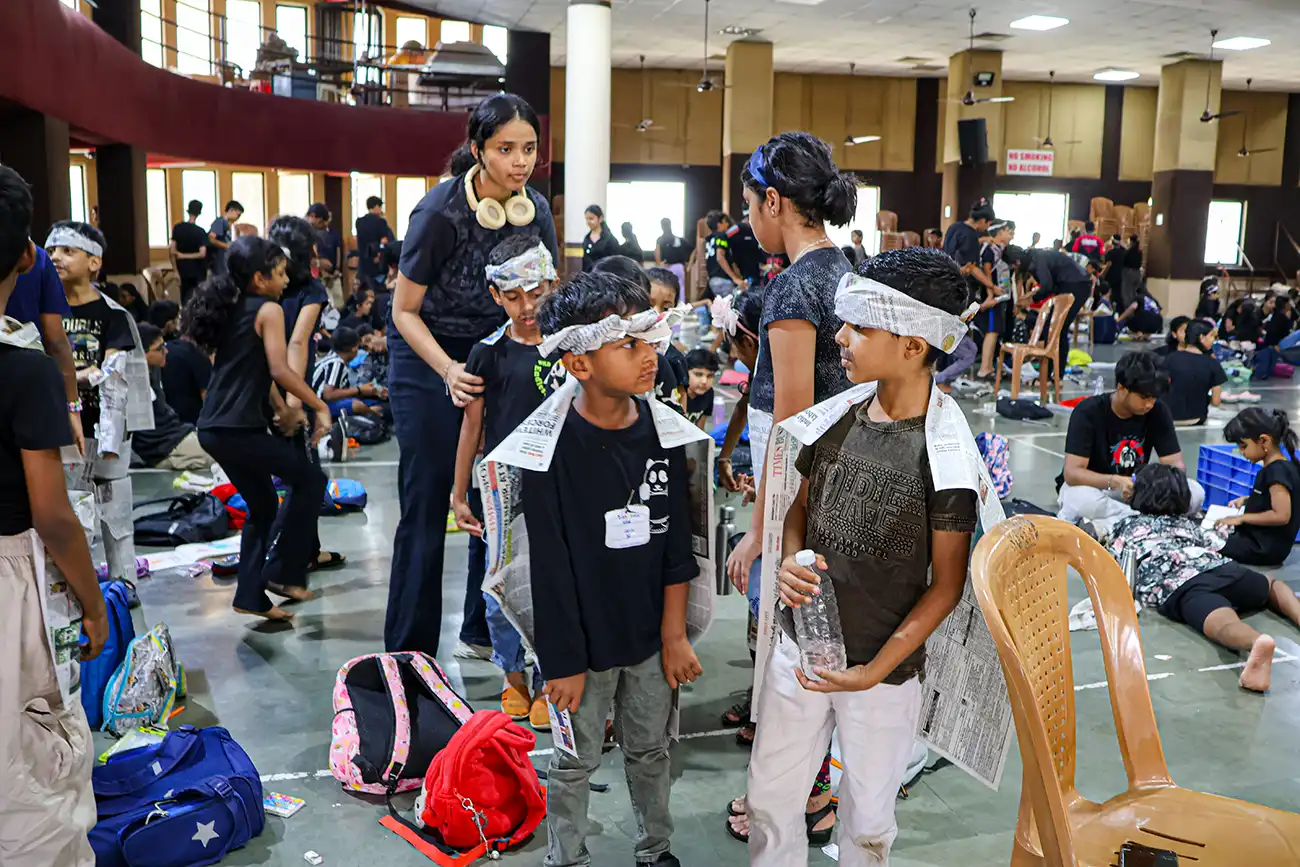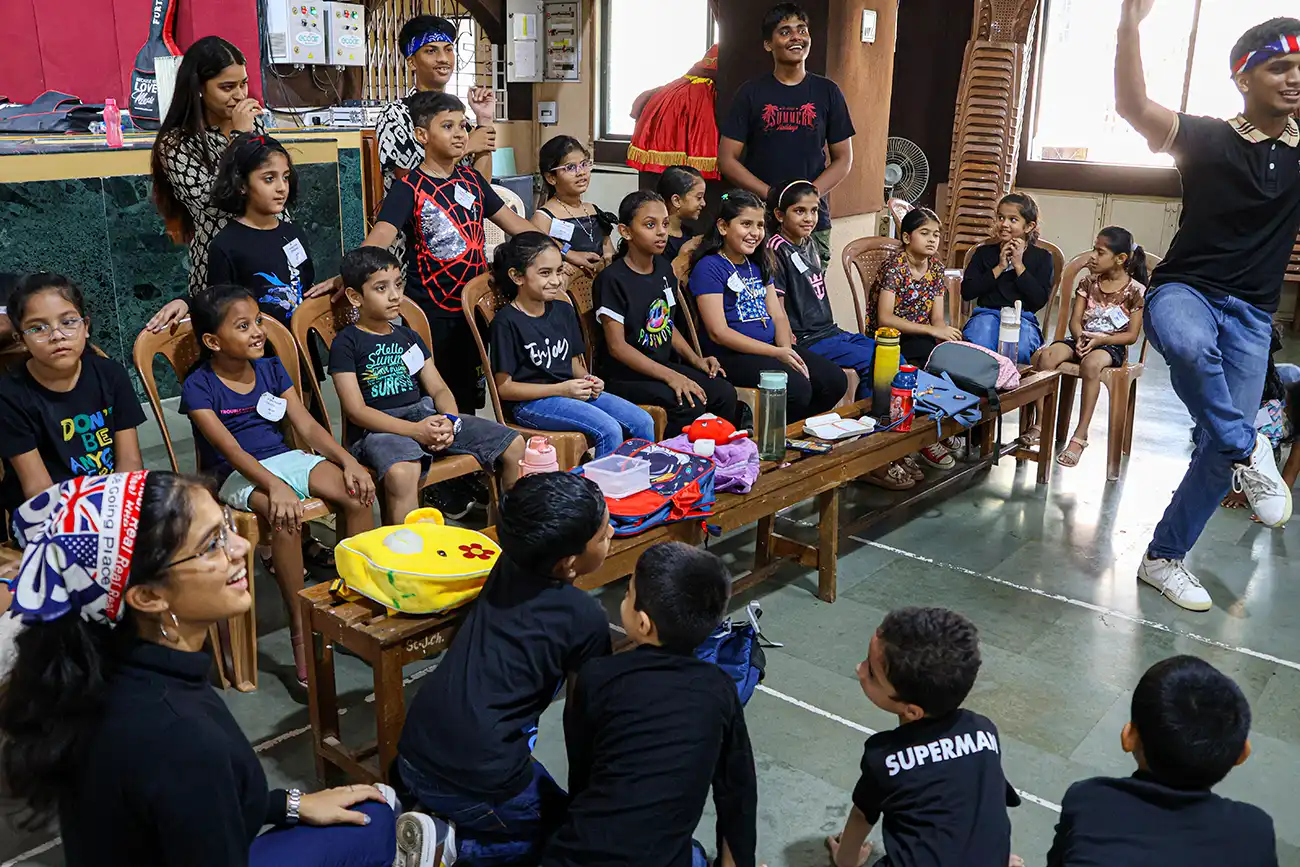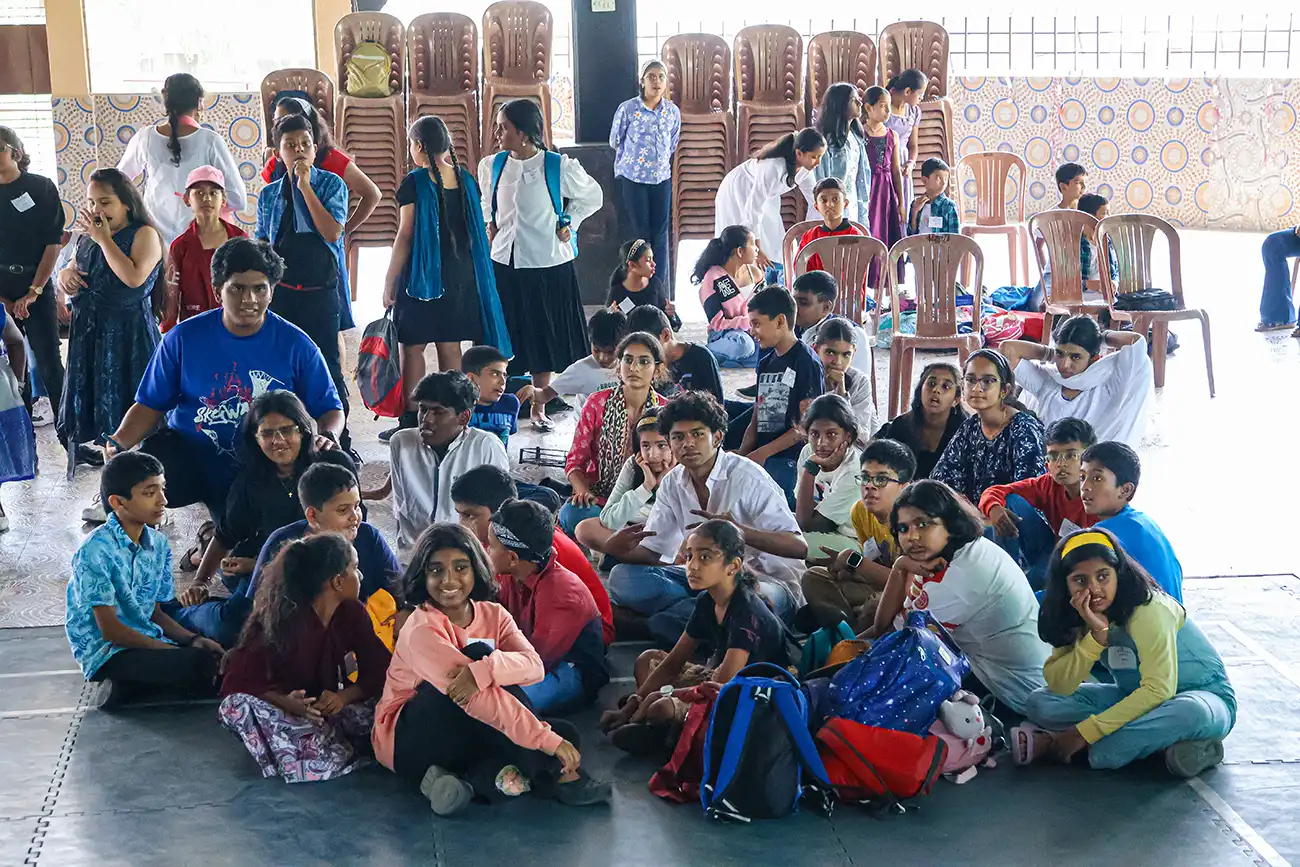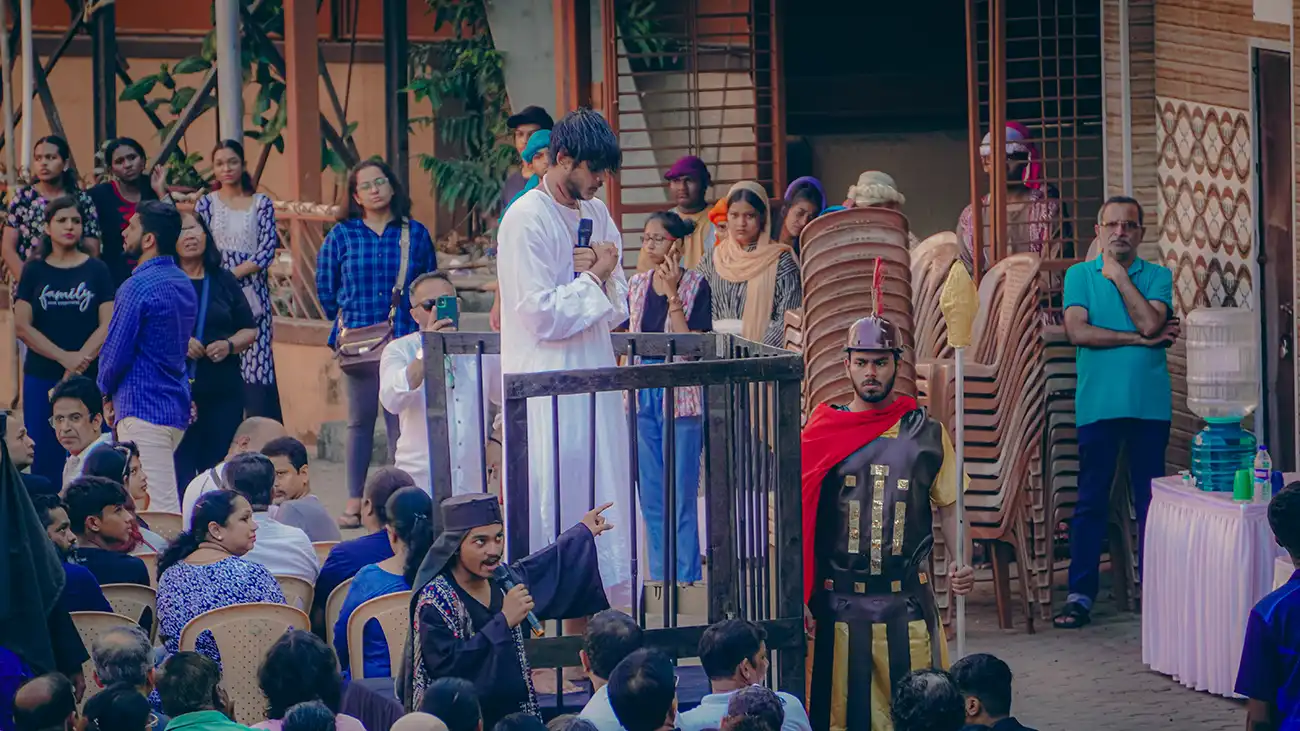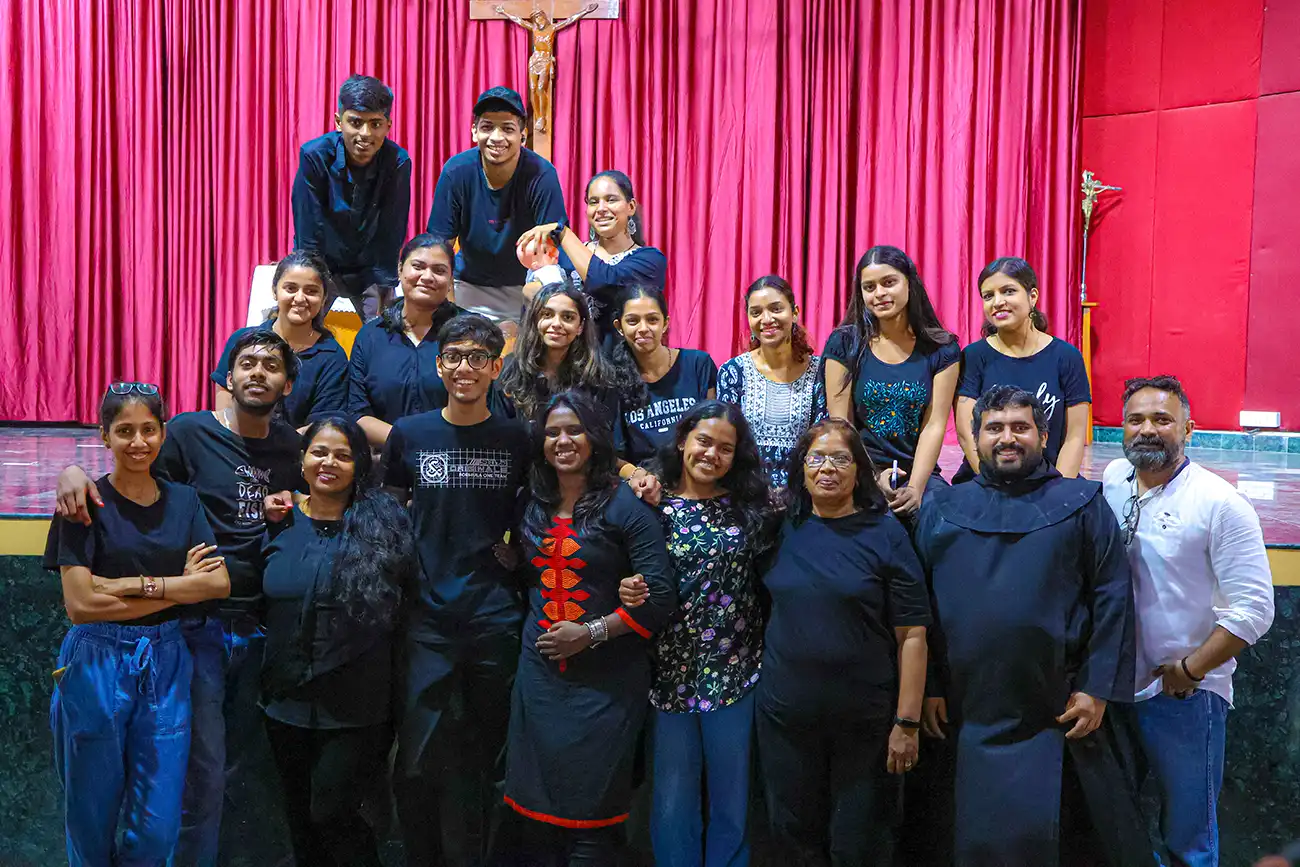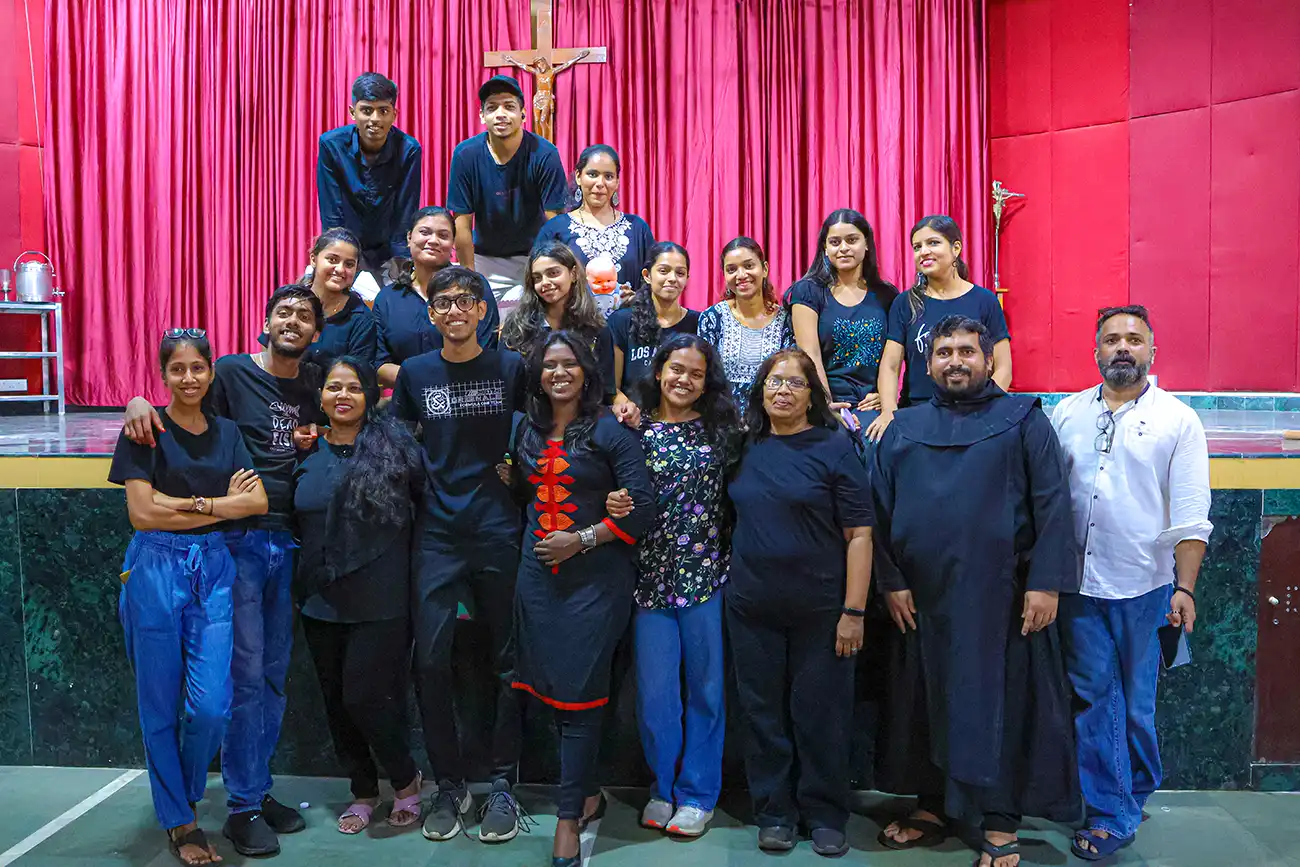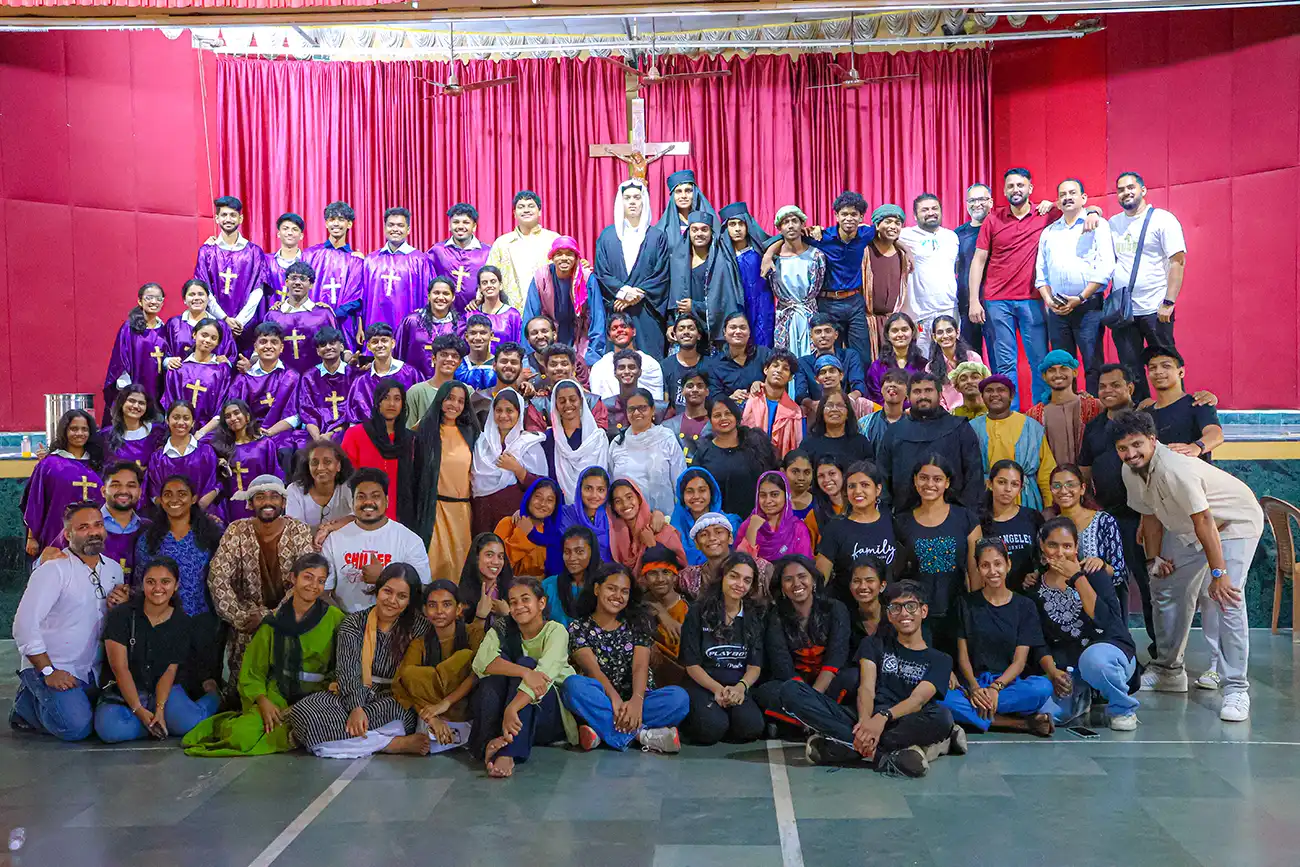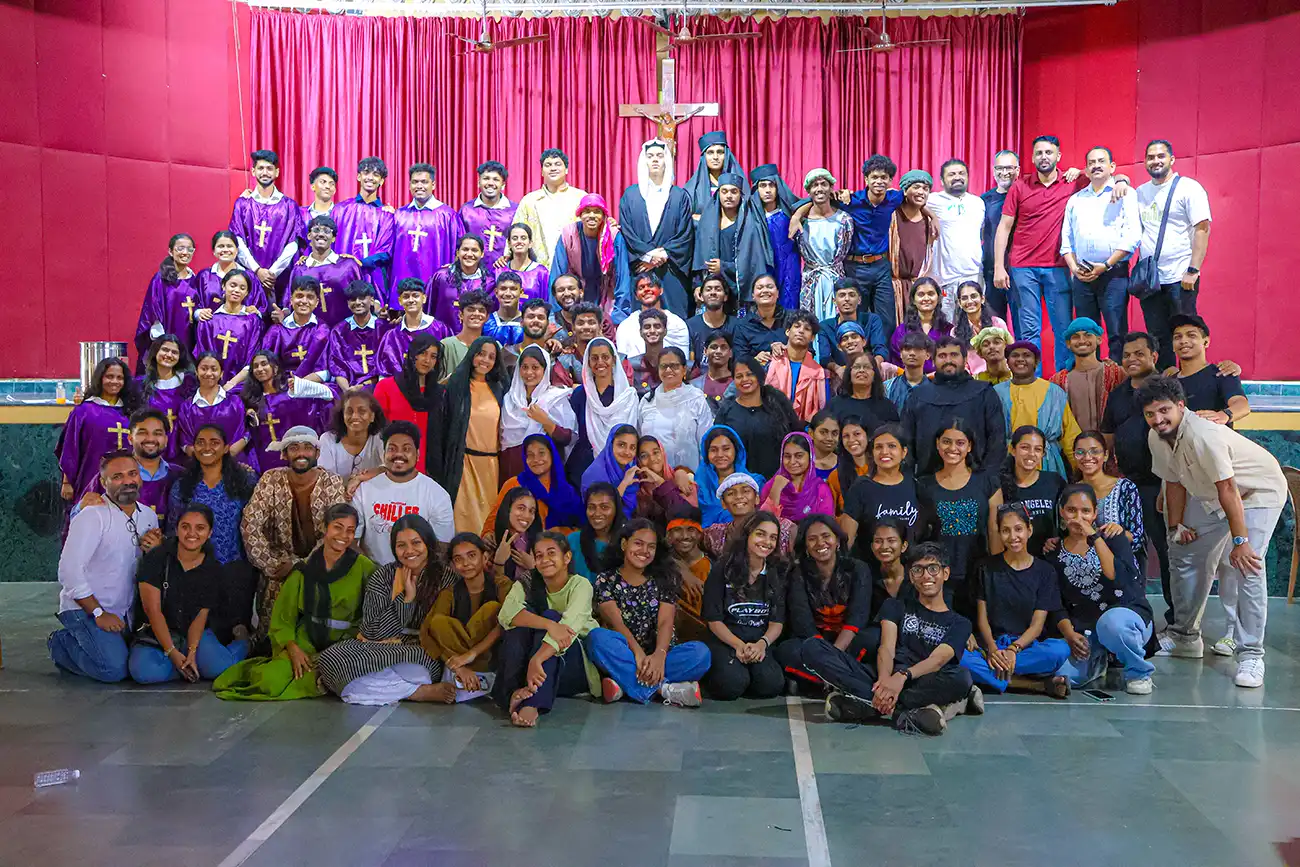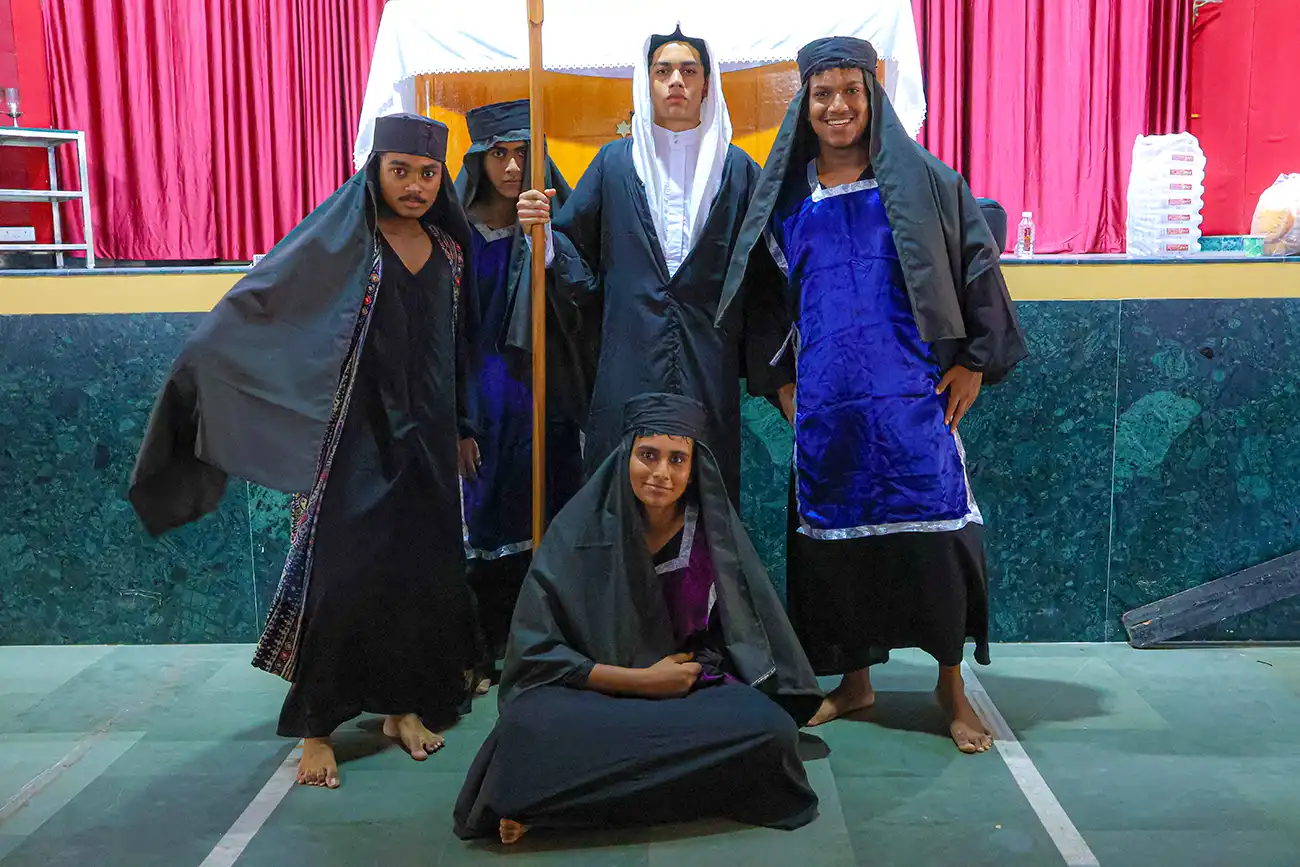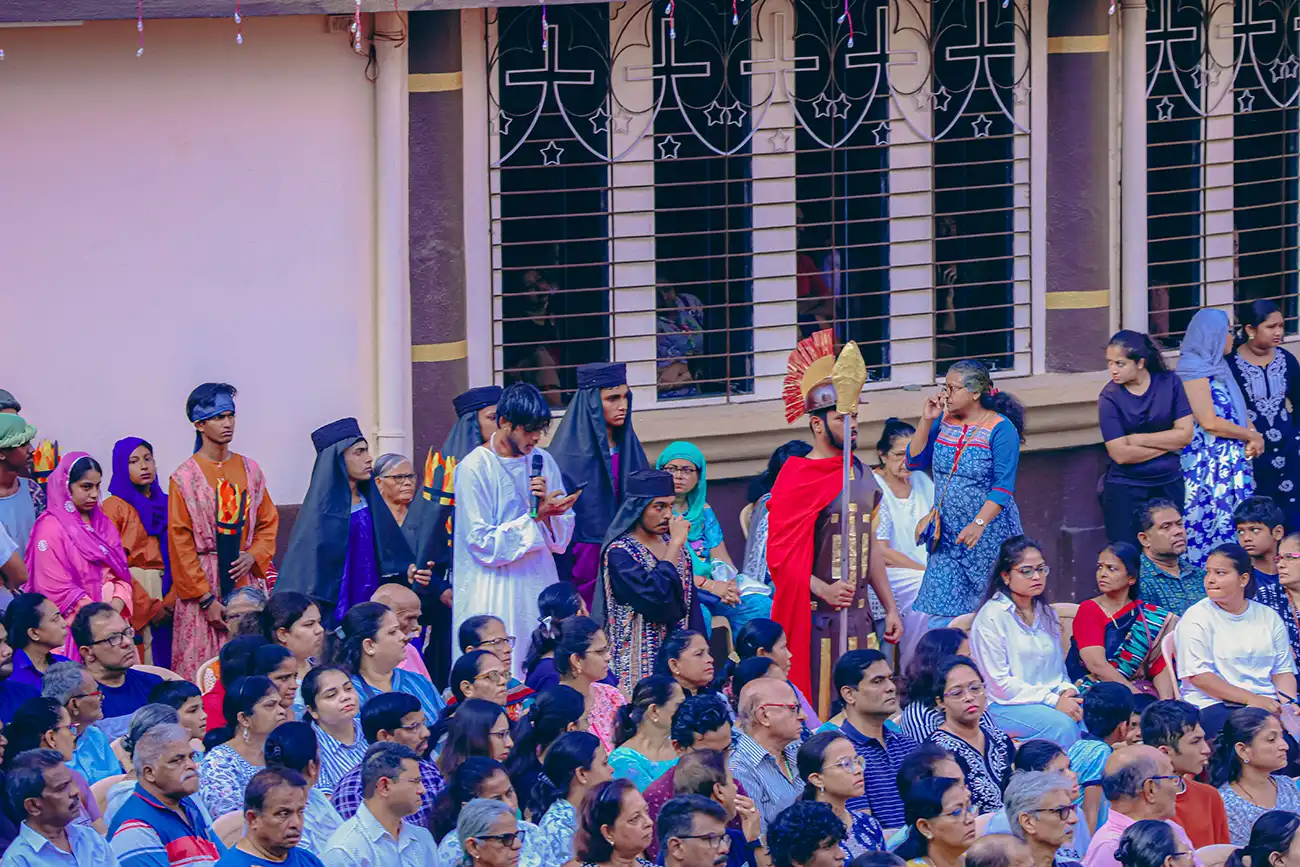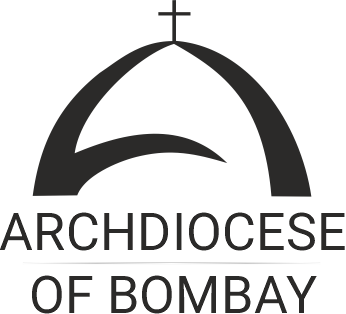1st June 2025 - Sunday Live Holy Eucharist
at 6.45 a.m. (In Konkani)
1st June 2025 - Sunday Live Holy Eucharist
at 8.15 a.m. (in English)
Our Clergy
Click for more info

Fr. Lawrence D'cunha
Parish Priest

Fr. Lawrence D'cunha
Parish Priest
Post: Parish Priest
Birthday: 15th November, 1974
Qualification: Masters in English Literature, Licentiate in Spirituality at Spain.
Place: Surathkal, Mangalore
First Profession: 14th December, 1995
Ordained on: 28th December, 2004
Spiritual Director - SCC Zones C & D
Responsibilities:
- Parish Pastoral Council (PPC)
- Finance Committee
- Communities (SCC)
- Centre for Community Organization (CCO)
- Community Welfare Fund (CWF)
- Society of St. Vincent de Paul (SVP)
- Pastoral Helpers
- Family Cell
- Mangalorean Konkani Association
- Goan Konkani Association
- East Indian Association
- Tamil Association
- Malyalam Association
- Gujarati Association
- Parish Retreats & Programme
- Booking of Community Hall, Terrace, Conference Hall, Infant Jesus, Fatima Hall, Church Grounds
- Workers/ Cleaning
- Karunya Seva
- Health Cell
Birthday: 15th November, 1974
Qualification: Masters in English Literature, Licentiate in Spirituality at Spain.
Place: Surathkal, Mangalore
First Profession: 14th December, 1995
Ordained on: 28th December, 2004
Spiritual Director - SCC Zones C & D
Responsibilities:
- Parish Pastoral Council (PPC)
- Finance Committee
- Communities (SCC)
- Centre for Community Organization (CCO)
- Community Welfare Fund (CWF)
- Society of St. Vincent de Paul (SVP)
- Pastoral Helpers
- Family Cell
- Mangalorean Konkani Association
- Goan Konkani Association
- East Indian Association
- Tamil Association
- Malyalam Association
- Gujarati Association
- Parish Retreats & Programme
- Booking of Community Hall, Terrace, Conference Hall, Infant Jesus, Fatima Hall, Church Grounds
- Workers/ Cleaning
- Karunya Seva
- Health Cell

Fr. Regan Paul D'souza
Assistant Priest & Superior

Fr. Regan Paul D'souza
Assistant Priest & Superior
Post: Assistant Priest / Superior of the Carmelite Fathers Community
Manager of Mount Carmel School
Birthday: 19th July, 1981
Qualification: B.Com, B.A (Philosophy), M Th (Sprituality)
Place: Hyderabad
First Profession: 28th September, 2008
Ordained on: 14th August, 2018
Spiritual Director - SCC Zones F & J
Responsibilities:
- St. Elizabeth OCDS Community
- St. Joseph’s OCDS Community
- Senior Citizens
- Counselling Cell
- RCIA
- Widow’s Cell
- Tidings/ Publication
Manager of Mount Carmel School
Birthday: 19th July, 1981
Qualification: B.Com, B.A (Philosophy), M Th (Sprituality)
Place: Hyderabad
First Profession: 28th September, 2008
Ordained on: 14th August, 2018
Spiritual Director - SCC Zones F & J
Responsibilities:
- St. Elizabeth OCDS Community
- St. Joseph’s OCDS Community
- Senior Citizens
- Counselling Cell
- RCIA
- Widow’s Cell
- Tidings/ Publication

Fr. Pawan Saldanha
Assistant Priest & Principal - Secondary/Pre-Primary

Fr. Pawan Saldanha
Assistant Priest & Principal - Secondary/Pre-Primary
Post: Assistant Priest / Principal - Secondary & Pre-Primary Section at the
Mount Carmel School
Birthday: 21st May, 1987
Qualification: B.A, B. Ed, B.Ph
Place:Agrar, Mangalore
First Profession: 20th July, 2006
Ordained on: 17th April, 2015
Spiritual Director - SCC Zone I
Responsibilities:
- Sunday School (1st to 10th)
- Confirmation
- Pre-Baptism Course
Mount Carmel School
Birthday: 21st May, 1987
Qualification: B.A, B. Ed, B.Ph
Place:Agrar, Mangalore
First Profession: 20th July, 2006
Ordained on: 17th April, 2015
Spiritual Director - SCC Zone I
Responsibilities:
- Sunday School (1st to 10th)
- Confirmation
- Pre-Baptism Course

Fr. Nelson Krist Cardoza
Assistant Priest & Principal-Primary

Fr. Nelson Krist Cardoza
Assistant Priest & Principal-Primary
Post: Assistant Priest / Principal - Primary Section (Mount Carmel School)
Birthday: 21st April, 1990
Qualification: BA
Place: Mira Road
First Profession: 14th December 2009
Ordained on: 17th April 2018
Spiritual Director - SCC Zone E
Responsibilities:
- Vocation Promoter
- Bible Cell
- Parish Website
- CCTV
- Women's Cell
- Couples for Christ
- Alcoholic Anonymous
Birthday: 21st April, 1990
Qualification: BA
Place: Mira Road
First Profession: 14th December 2009
Ordained on: 17th April 2018
Spiritual Director - SCC Zone E
Responsibilities:
- Vocation Promoter
- Bible Cell
- Parish Website
- CCTV
- Women's Cell
- Couples for Christ
- Alcoholic Anonymous

Fr. Ashwin D'souza
Assistant Priest/ Youth Director & Vice-Principal

Fr. Ashwin D'souza
Assistant Priest/ Youth Director & Vice-Principal
Post: Assistant Priest / Youth Director
Vice - Principal at Mount Carmel School
Birthday: 25th February, 1992
Qualification: BA (Philosophy)
Place: Kayyar, Kasaragod, Kerala
First Profession: 14th December, 2011
Ordained on: 8th July, 2020
Spiritual Director - SCC Zones G & H
Responsibilities:
- Youth (PYC)
Vice - Principal at Mount Carmel School
Birthday: 25th February, 1992
Qualification: BA (Philosophy)
Place: Kayyar, Kasaragod, Kerala
First Profession: 14th December, 2011
Ordained on: 8th July, 2020
Spiritual Director - SCC Zones G & H
Responsibilities:
- Youth (PYC)

Fr. Ashwin Rohan D'silva
Assistant Priest

Fr. Ashwin Rohan D'silva
Assistant Priest
Post: Assistant Priest
Birthday: 14th March, 1988
Qualification: MBA
Place: Saverapura, Mangalore
First Profession: 20th July, 2007
Ordained on: 23rd April, 2016
Spiritual Director SCC Zones K & L
Responsibilities:
- Prison Ministry
- English Charismatic Prayer
- Hindi Charismatic Prayer
- Konkani Charismatic Prayer
- Legion of Mary (English/ Konkani)
- Techno (Sound) / LCD, Computer
Birthday: 14th March, 1988
Qualification: MBA
Place: Saverapura, Mangalore
First Profession: 20th July, 2007
Ordained on: 23rd April, 2016
Spiritual Director SCC Zones K & L
Responsibilities:
- Prison Ministry
- English Charismatic Prayer
- Hindi Charismatic Prayer
- Konkani Charismatic Prayer
- Legion of Mary (English/ Konkani)
- Techno (Sound) / LCD, Computer

Fr. Ivo Dias
Assistant Priest

Fr. Ivo Dias
Assistant Priest
Post: Assistant Priest
Birthday: 24th Feb, 1984
Qualification: B.Ph, M. Phil, M. Com
Place: Navelim, Goa
First Profession: 20th July, 2003
Ordained on: 19th April, 2012
Spiritual Director - SCC Zones A & B
Responsibilities:
- Liturgy & Sacristy
- Altar Servers
- Choir
- Lectors
- Extra-Ordinary Ministers of Holy Communion (EMHC)
- Finance (Counting Team)
- Church Book Stall
Birthday: 24th Feb, 1984
Qualification: B.Ph, M. Phil, M. Com
Place: Navelim, Goa
First Profession: 20th July, 2003
Ordained on: 19th April, 2012
Spiritual Director - SCC Zones A & B
Responsibilities:
- Liturgy & Sacristy
- Altar Servers
- Choir
- Lectors
- Extra-Ordinary Ministers of Holy Communion (EMHC)
- Finance (Counting Team)
- Church Book Stall
Announcements
Prayer
Sacraments
Hover/Click on image
Our Laity
Click for more info
Edit Content
Edit Content
Edit Content
Edit Content
Gallery
Photos/Videos
Click on photo to enlarge
Contact Us
Office Timings
Weekdays: Monday to Saturday
Morning : 9:00 am to 12:30 pm
Evening : 4:00 pm to 6:30 pm
Sunday – CLOSED
Community Welfare Fund
Mrs. Helen D’Souza
Mass Booking & Other Services
Mrs. Sayanora Fernandes
Center For Community Organization
Mr. Daryl Pais
Location
Krista Shanti Dham, St. Joseph Nagar,
Behind Holy Cross Convent School Road,
Krista Shanti Dham, St. Joseph Nagar,
Behind Holy Cross Convent School Road,
Mira Road (East), Thane, Maharashtra 401107
Telephone
+91 22 2812 7851
+91 22 2812 7851
For Parish ID Card
Please visit the Parish office during office hours.
Please visit the Parish office during office hours.


